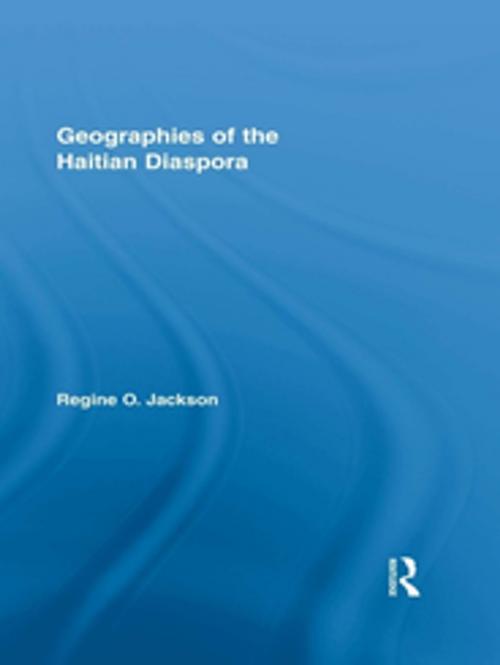Geographies of the Haitian Diaspora
Nonfiction, Social & Cultural Studies, Social Science, Human Geography| Author: | ISBN: | 9781136807879 | |
| Publisher: | Taylor and Francis | Publication: | June 27, 2011 |
| Imprint: | Routledge | Language: | English |
| Author: | |
| ISBN: | 9781136807879 |
| Publisher: | Taylor and Francis |
| Publication: | June 27, 2011 |
| Imprint: | Routledge |
| Language: | English |
This book considers the full sweep of Haitian community invention and recreation in a multitude of national territories, with an eye toward the "place" factors that shape the everyday lives of Haitian migrants. Regine O. Jackson brings together an interdisciplinary group of scholars to explore how Haitian communities differ across time and place, as well as how migrants adjust to new economic, political and racial realities. The volume includes descriptive ethnographies of Haitians in 19th century Jamaica, eastern Cuba, Detroit, the Dominican Republic, Guadeloupe, Paris, and Boston, and innovative scholarly work on non-geographic sites of Haitian community building. The most important question addressed here is not whether the places described represent typical or exceptional Haitian diasporic communities, but how, why and to what effect do Haitians in particular places use diaspora as a signifier. By examining the diversity (and sameness) of the Haitian experience in diaspora, Geographies of the Haitian Diaspora asks how we might situate community in view of increased scholarly attention to transnational processes.
This book considers the full sweep of Haitian community invention and recreation in a multitude of national territories, with an eye toward the "place" factors that shape the everyday lives of Haitian migrants. Regine O. Jackson brings together an interdisciplinary group of scholars to explore how Haitian communities differ across time and place, as well as how migrants adjust to new economic, political and racial realities. The volume includes descriptive ethnographies of Haitians in 19th century Jamaica, eastern Cuba, Detroit, the Dominican Republic, Guadeloupe, Paris, and Boston, and innovative scholarly work on non-geographic sites of Haitian community building. The most important question addressed here is not whether the places described represent typical or exceptional Haitian diasporic communities, but how, why and to what effect do Haitians in particular places use diaspora as a signifier. By examining the diversity (and sameness) of the Haitian experience in diaspora, Geographies of the Haitian Diaspora asks how we might situate community in view of increased scholarly attention to transnational processes.















